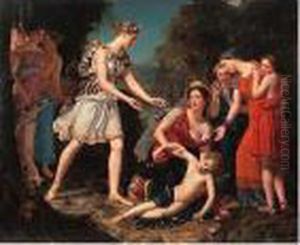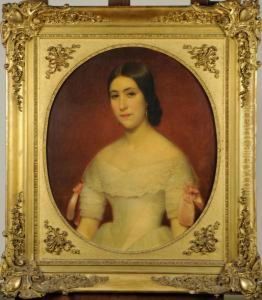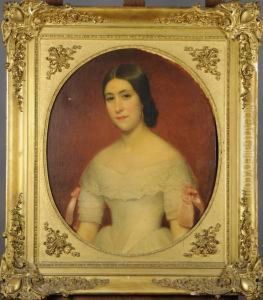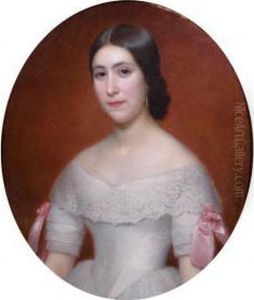Sophie, Nee Fremiet Rude Paintings
Sophie Rude, née Frémiet (1797-1867), was a French artist known for her remarkable talent as a painter. Born in Dijon, France, Sophie was deeply influenced by the rich cultural heritage of her homeland, which was brimming with artistic and intellectual activity during the late 18th and early 19th centuries. She was initially trained by her father, François Frémiet, who was a drawing master. Her early education included a solid grounding in the fundamentals of drawing and painting, which laid the foundation for her future artistic endeavors.
Sophie’s talents were further honed when she moved to Paris and continued her studies under various accomplished artists of the time. It was in Paris that she met the noted sculptor François Rude, whom she married in 1821. Her marriage to François Rude significantly influenced her artistic career. The couple was part of the vibrant artistic community in Paris, and through her husband, Sophie was exposed to a circle of artists and intellectuals that included some of the leading figures of the day. This environment was stimulating for her development as an artist, and she often assisted her husband with his sculptural projects, gaining insights into form and volume that would enrich her own work.
Although Sophie Rude’s contributions to the arts were somewhat overshadowed by her husband’s fame, she did produce a body of work that is recognized for its sensitivity and skill. She specialized in portraiture and historical paintings, often depicting scenes from French history with a romantic and expressive flair. Her paintings were noted for their detail, composition, and the vivid portrayal of emotions, which reflected the Romantic sensibilities of the time.
Unfortunately, detailed records of her exhibitions and the extent of her oeuvre are scarce, as was often the case with female artists of her era. However, historians have been able to piece together a picture of a dedicated artist who navigated the challenges of being a woman in a male-dominated field with grace and perseverance.
Sophie Rude’s legacy is an important part of the history of women in art. Her life and work serve as an inspiration, demonstrating the valuable contributions that women have made to the arts, often against significant odds. Sophie Rude passed away in 1867, leaving behind a legacy that would be appreciated by future generations of art historians and enthusiasts.



